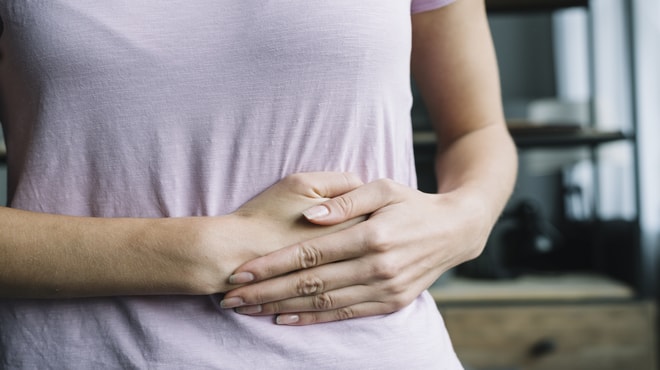Around half of all people who have surgery have a problem or complication. Many problems are minor but some can be life threatening. Treating them as soon as possible is important.


Treating them as soon as possible is important.
Weakness and lacking strength
Surgery for stomach cancer is a major operation.
Most people feel weak and lack strength for some time afterwards. How long this lasts varies.
Tell your doctor or nurse if the weakness continues for more than a few weeks. They can suggest things to help, such as physiotherapy.
Most people have some problems eating after surgery. This can cause weight loss. Many people don’t regain their weight easily. Eating small amounts regularly is important.
You might also have tummy (abdominal) discomfort and diarrhoea after certain foods. The combination of these symptoms is called dumping syndrome.
Tell your dietitian about any problems you have with eating.
You will have antibiotics to reduce the risk of developing an infection after surgery. Tell your doctor or nurse if you have any symptoms of an infection. They include:
- feeling generally unwell
- shivering
- feeling hot and cold
- feeling sick
- swelling or redness around your wound
Leaks
Leaks can happen where the surgeon joins the end of the stomach or food pipe (oesophagus) and the small bowel. This is called an anastomotic leak. This is a serious problem and you need to have treatment straight away.
Treatment includes:
- stopping eating and drinking
- antibiotics
- draining the leak
- tube feeding
You will have endoscopies and scans to check that it is healing. You might need more surgery to repair the leak if the other treatments don’t work. You need to stay in hospital longer if you have a leak.
Around 7 out of 100 people (7%) have a leak after this surgery. This is most likely to happen in the first week after surgery. It is extremely rare for people to have a leak after they have gone home.
Contact your doctor if you have any breathlessness or severe chest pain.
Chest and breathing problems
Chest infections, including pneumonia, can be serious. Treatment is antibiotics.
You can lower your risk by:
- stopping smoking before your operation
- getting up and moving as soon as possible after your operation
- doing the breathing exercises your physiotherapist teaches you
Heart problems
Some people have heart problems after this surgery. This can cause problems with other organs, including your kidneys. You’ll have regular blood tests to check how well your heart and kidneys work.
Slow emptying of your stomach and reflux
Surgery can cause a problem with the contents of the stomach going back into the food pipe (reflux).
Reflux can cause symptoms such as heartburn. Treatment includes:
- antacids
- medicines that help to move food through the stomach and bowel
Not getting enough nutrients
After stomach surgery you may need to take extra calcium, vitamin D and iron. This is because the stomach absorbs these nutrients. You can’t absorb enough from your normal diet without all or most of your stomach.
You will no longer be able to take in vitamin B12 from your food without most or all of your stomach. This is because your stomach produces a substance called intrinsic factor that means your body can use vitamin B12. Vitamin B12 helps us maintain a healthy blood supply. You will need vitamin B12 injections.
The thoracic duct is a tube close to the oesophagus. It is part of the lymphatic system. During your operation, your surgeon may divide it. Rarely, it leaks after your operation. This is most likely to happen in the first week after surgery.
The main symptom is more fluid draining into your chest drain than your doctor would expect.
Rarer symptoms include pain and feeling breathless.
Treatment is to drain the fluid. You might need to have another tube put into the area where the fluid is collecting. You might need to have an operation to repair it if the duct doesn’t repair itself.
